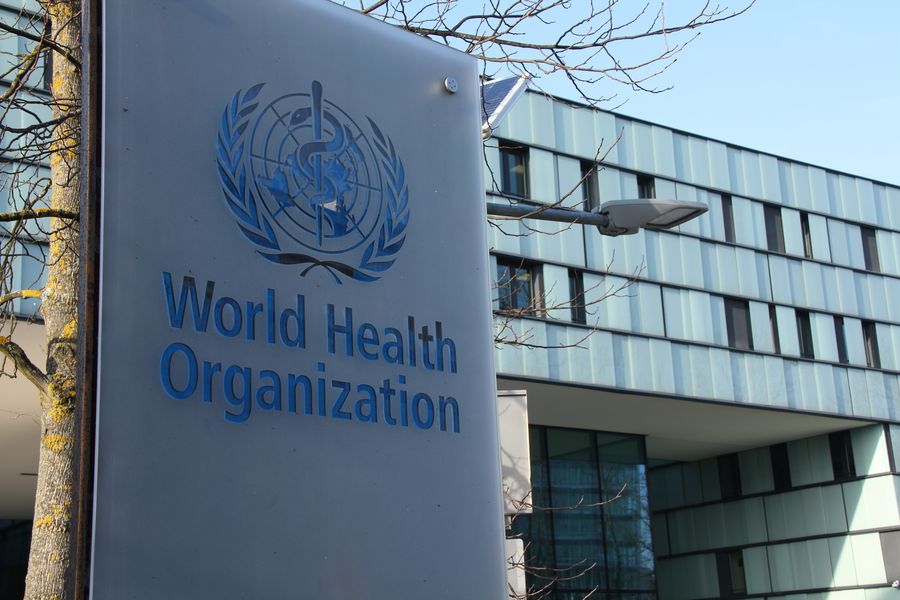
Editor's note: Gauden Galea is the World Health Organization (WHO) Representative to China.The article reflects the author's opinions, and not necessarily the views of CGTN.
Malaria, a completely preventable and treatable disease, is also deadly. In 2019, it was the cause of 409,000 lives lost.
For decades, the World Health Organization (WHO) and the global community have worked to support national government efforts to eliminate this disease.
China is one such country. Malaria was once widespread, with over 24 million cases reported in the early 1970s. Building on earlier efforts that began as early as the 1950s, in 2010 the National Malaria Elimination Programme (NMEP) was launched, backed by strong political commitment and an effectively integrated approach across 13 ministries and between central and local levels.
The results were striking. Since 2017, China has reported zero indigenous malaria cases.
The end goal for all malaria-endemic countries is certification of malaria elimination, the official recognition by WHO of a country's malaria-free status. WHO grants the certification when a country has proven that the chain of indigenous malaria transmission has been interrupted nationwide for at least the past 3 consecutive years. A country must also demonstrate the capacity to prevent the re-establishment of transmission.
Following a field visit this spring by an independent certification panel on June 30, 2021, WHO certified China as malaria-free.
Successful national malaria prevention and control plans require high levels of political commitment, translated into sufficient domestic funding and interventions often sustained over many decades, even after a country is malaria-free.
Most countries that reach zero malaria also have strong primary health care systems that ensure access to malaria prevention, diagnosis and treatment services, without financial hardship, for everyone living within their borders, regardless of nationality or legal status. Robust data systems are also a key to success, together with strong community engagement and improved hygiene.
This has been the experience in China. Take Yunnan Province as an example.
Yunnan, known for its dramatic mountain scenery, verdant tea plantations, healthy rice paddies and delicious produce, also offers fertile breeding grounds for mosquitoes in the rainy season, including several species of Anopheles mosquitoes, which can harbor and transmit malaria. In 2010, when China announced a national policy to eliminate malaria, Yunnan Province had the greatest number of counties considered at high risk for the disease.
Over the last decade, the Yunnan Institute of Parasitic Diseases (YIPD) has worked together with the local Chinese Center for Disease Control and Prevention (CDC) to stamp out indigenous cases of the disease across the province.
The "1-3-7" strategy of China is at the core of its successful malaria elimination effort. The strategy refers to the diagnosis, investigation and follow-up of cases that must occur within 1, 3 and 7 days.

An exterior view of the headquarters of the World Health Organization (WHO) in Geneva, Switzerland, January 22, 2020. /Xinhua
An exterior view of the headquarters of the World Health Organization (WHO) in Geneva, Switzerland, January 22, 2020. /Xinhua
On day one, any malaria case, confirmed by a rapid diagnostic test or microscopy and treated, must be reported to the local CDC. By the end of day three, the county CDC must confirm and investigate the case and determine if there is a risk of spread.
By the end of day seven, the county CDC manages any malaria risks in the areas where the person with malaria has spent time, including testing and treating community members; identifying the malaria type; raising awareness in the community; investigating the species of mosquitoes and reducing their numbers, including through indoor spraying of insecticides.
As a result of strict adherence to the "1-3-7" strategy, Yunnan has not had a single local malaria case for several years.
Looking forward, countries like China that have been certified malaria-free must remain vigilant to prevent a return of the disease. Yunnan Province knows well the challenges to maintaining malaria-free status. It borders three malaria-endemic countries, which are the Lao People's Democratic Republic (Lao PDR), Myanmar and Vietnam. People travel in and out of Yunnan from these countries constantly and, as a result, the province reports about 300 imported cases of malaria each year.
Future efforts also need to include continued engagement and support to malaria-endemic countries in the region. Just as in the case of the current pandemic, no country can control malaria without strong cross-border collaboration. Just like viruses, mosquitoes don't carry passports and don't care which passports you carry.
When there is an imported case of malaria, health authorities must work quickly to stop it from infecting anyone locally. Additional infections can lead to a resurgence of the disease. There are 68 established field stations in Yunnan's border towns and villages to help rapidly identify any imported cases of the disease.
Travelers visiting malaria endemic countries along the border also have a role to play – taking personal preventative measures including a full course of antimalarial medication travel and the use of treated bed nets, indoor spraying, insect repellent and long-sleeved clothing. At the first signs of illness, they should seek professional medical treatment.
China's malaria-free journey doesn't stop here. In May of this year, the global community adopted a new resolution at the World Health Assembly to revitalize and accelerate global efforts to end malaria. It calls on countries to extend investment in and support for health services, ensuring no one is left behind; sustain and scale up enough funding for the global malaria response; and boost investment in the research and development of new tools.
There is a role for China to play in achieving global target, offering important lessons from its own malaria-elimination experiences. Many countries in our region and globally can benefit from the continued sharing of those lessons and support to their own national programs.
Ending malaria is a national, regional, and global priority. By working together, we can stop this preventable disease.
(If you want to contribute and have specific expertise, please contact us at opinions@cgtn.com.)

